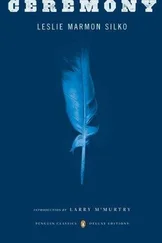The construction crews began to arrive in big freight wagons. Sister Salt counted the workers, then told Maytha and Vedna she had a plan: they would go into the laundry business for themselves. They hid when the others left for school, and met upriver where the clear side pools stood amid the willows and cattails. They dug soapweed yucca roots and hung them in the willows to dry first before they used them. They had no tin laundry tubs, so one night they borrowed an old oak barrel used to collect garbage from the rear of the dormitory. At first Maytha and Vedna were hesitant, but Sister Salt dumped the contents from the barrel; the stray dogs will take the blame, she told them. They rolled the barrel for what seemed like hours; the hollow noise of the barrel rolling along striking rocks set off the barking dogs, and they feared someone would alert the agency policeman, Mr. Syrup.
“Old Syrup sleeps like a rock,” Sister Salt said. “Don’t even worry about him. If he comes along right now I know where to touch him so he won’t tell anyone.” Maytha and Vedna giggled at Sister Salt’s remark; she was like the old-time people their mother talked about — before the missionaries came. In those days, the Chemehuevis really knew how to enjoy one another; only Sand Lizards knew how to enjoy sex more, Maytha joked, and Sister Salt nodded proudly. It was true: Sand Lizards practiced sex the way they all used to, before the missionaries came.
Maytha and Vedna complained the site of their laundry camp was too far to walk, but Sister Salt pointed out Mr. Syrup wouldn’t walk that far, so they’d be safe. They swore the other girls in the school laundry to secrecy and promised them a share of the money if they didn’t tell anyone. The dormitory attendants took roll only in the morning, so afterward they left the other girls in the school laundry while they hurried to the makeshift laundry along the river.
The first Saturday they walked upriver to the edge of the construction camp, only a few of the workers gave them bundles of laundry to wash. But in the following weeks the word got around: clean laundry for half the price the school superintendent charged.
Distinguished visitors from Washington, D.C., and excitement over the beginning of the aqueduct from the river to southern California kept the reservation superintendent occupied for weeks, and he did not immediately notice the decrease in receipts because more workers arrived every day. As their business grew, Sister Salt and the Chemehuevi sisters shared their laundry customers with the others girls, who used the school’s laundry facilities to make a little money.
Down along the river Sister Salt sometimes forgot everything but the sound of the water and its coolness over her legs; later when she lay in the shade on the river sand, surrounded with the perfume of the willows, she imagined she was back in the previous year when she and Indigo were still together safely at the old gardens. She knew she must not permit herself to dwell on their separation for fear she might become too sad to move, too sad for her stomach to digest food. Instead, she kept busy; she scrubbed the dungarees and overalls on the flat sandstone. She began to wonder: if Jesus really was such a loving being, why did he disappear with their mother but leave her and Indigo behind?
She saved the coins from her share of the profits each week in a jar buried under a cottonwood tree by the river. The tree was old and so big that Sister Salt could not come close to reaching her arms around its trunk when she closed her eyes to embrace it and lay her cheek on its nubbly bark because she was so lonely for the touch of someone who loved her. With her arms around the tree, she thought of Grandma Fleet and Mama then, and Indigo, and she cried until her eyes felt tiny and hot. She did not know what to do next. Where was Mama? How would she get Indigo home? She saved up money, but what good was it to her? She let go of the tree and let her arms drop down to her sides as she sank down on the river sand.
Suddenly she sensed she was being watched. She jumped up and without taking her eyes off the thicket of willow and tamarisk, Sister Salt reached down and picked up a fallen branch. She carried it raised like a club in both hands as she began to make her way back to the school dormitory. They all knew stories about women and even little girls attacked by whites or black men or Mexicans who worked for them.
She was breathing hard and her heart was pounding so loudly she couldn’t tell if the rustle in the bushes was quail or an enemy. The memory of a Cocopa girl beaten and bloodied after an attack filled her with anger. She gripped the stick tighter and felt the anger lift her; her legs felt stronger and lighter; the club seemed light in her hands. Suddenly she wanted very much to find her stalker. She crept along the path next to the river silently as she did rabbit hunting, stopping frequently to listen as she held her breath. She made a circle, crawling under the tamarisks and willows on her hands and knees, dragging the club in one hand. Up ahead she heard the crackle of twigs underfoot — it was a big foot in heavy boots. From around her neck she brought out the rawhide pouch with the flint blade Grandma Fleet gave her.
She crept up behind the large figure squatting in the rice grass and was about to spring on him and stab him in the throat when she recognized the muscular back and huge forearms and hands.
“Hey!” she yelled and the big man startled and never looked back; he tumbled forward on his hands and knees and crawled madly into the tamarisk seedlings in fright. He looked so frightened, despite his size, Sister Salt started laughing. The sound of her laughter made him stop and turn his head with a sheepish grin.
“You almost gave me a heart attack,” Big Candy said, pretending to feel his chest over his heart. Sister Salt laughed harder. He was their favorite laundry customer because he was so jolly, always teasing and making jokes about himself and his huge overalls he claimed he ordered from a tent manufacturer in St. Louis. She told him he ought to be more careful or he might get hurt. He’d learned his lesson, he said, with a make-believe shudder and big grin as he looked at the flint knife in her hand. He nodded his head dramatically; all the while Sister Salt watched his eyes — they were even blacker than his face. What beautiful teeth he had; she noticed them the first time he brought his laundry to them. Big Candy was the cook and right-hand man for the construction site superintendent, Mr. Wylie.
“You can see what a good cook I am,” he told them the first time they met him, as he showed off his big stomach. After that, even when he was too busy to come himself, he sent his bundle of dirty laundry along with little gifts — leftover cake or pie saved from Mr. Wylie’s table. The black and Mexican construction workers were the only ones who acted friendly or tried to talk to the Indian girls. The churchgoing Indian girls ignored them and refused to look them in the eyes because the minister warned them every Sunday about the dangers of Negroes and Mexicans.
In the beginning Sister Salt talked to Big Candy only to practice her English, but he made such funny jokes about himself she found herself laughing as she had with Indigo and Grandma Fleet. Still, Sister was surprised Candy tried to follow her along the river, where his bulk and the tangle of tamarisk and willow made tough going.
“The churchgoers say all you want from us is adultery,” Sister Salt said, idly swinging her club by its handle, still gripping the stone blade. Candy brushed the dry leaves off his overalls and pulled twigs from his hair. He smiled and shook his head slowly.
“That’s all those churchgoers think about.” He looked Sister Salt in the eyes. He seemed relaxed as he sat there on the ground looking up at her. Sister Salt threw down the club and sat on the ground not far from him. She rubbed the stone blade carefully between two fingers to test its edge and waited for him to say something; she and the Chemehuevi girls always laughed at him because he liked to talk so much. She cleaned the dirt from under her fingernails with the tip of the blade, stealing sidelong glances at him. The churchgoers said don’t get near the black men or your babies will be born with monkey tails, but Sister didn’t believe anything the churchgoers said because they were wrong about Jesus Christ. They claimed he died on a cross long ago, but Sister saw him with her own eyes last winter.
Читать дальше












